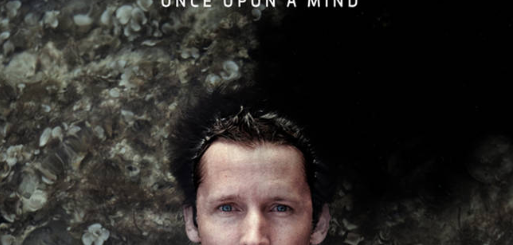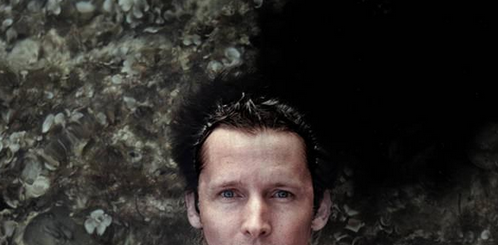Wisemen by James Blunt Lyrics Meaning – Decoding the Philosophical Depths in Pop Music
Lyrics
Won’t you tell me what the Wise Men said
When they came down from Heaven?
Smoked nine ’til seven
All the shit that they could find?
But they couldn’t escape from you
Couldn’t be free of you
And now they know there’s no way out
And they’re really sorry now for what they’ve done
They were three Wise Men just trying to have some fun”
Look who’s alone now
It’s not me
It’s not me
Those three Wise Men
They’ve got a semi by the sea
Gotta ask yourself the question
Where are you now?
Gotta ask yourself the question
Where are you now?
Really sorry now
They weren’t to know
They got caught up in your talent show
With you pernickety little bastards in your fancy dress
Who just judge each other and try to impress
But they couldn’t escape from you
Couldn’t be free of you
And now they know there’s no way out
And they’re really sorry now for what they’ve done
They were three Wise Men just trying to have some fun
Look who’s alone now
It’s not me
It’s not me
Those three Wise Men
They’ve got a semi by the sea
Gotta ask yourself the question
Where are you now?
Gotta ask yourself the question
Where are you now?
Look who’s alone now
It’s not me
It’s not me
Those three Wise Men
They’ve got a semi by the sea
Gotta ask yourself the question
Where are you now?
Gotta ask yourself the question
Where are you now?
Where are you now?
Where are you now?
Gotta ask yourself the question
Where are you now?
Gotta ask yourself the question
Where are you now?
James Blunt’s ‘Wisemen,’ a track from his debut album ‘Back to Bedlam,’ captivates with more than just a melodic hook. Upon closer inspection, the song’s lyrics weave a complex tale that delves deep into existential angst, the perils of modern society, and the universal search for meaning. The seemingly whimsical story of three wise men takes on symbolic proportions against the backdrop of a life led by the masses.
While on the surface it could be reduced to a simple ballad of love and loss, ‘Wisemen’ stands as a testament to Blunt’s skillful songwriting. His ability to layer meaning through allegory and metaphor elevates the track from a pop song to a piece of poetic commentary. Here, we dissect the intricacies of ‘Wisemen,’ unearthing the profound messages that lie beneath its catchy chorus.
The Echo of Modernity in ‘Wisemen’
The track begins with a reflection on the wisdom passed down from the heavens, a time-honored tradition of seeking knowledge from those who came before. Yet, those wise men, intoxicated by their search (‘smoked nine ’til seven’), find themselves trapped in the grip of contemporary society. It’s a stark portrayal of the struggle to preserve ancient wisdom in a world overrun by fleeting gratifications and excessive consumption.
Blunt paints a vivid picture of the collective fall from grace, symbolized by the wise men’s inability to break free from the cycle of popular culture. The refrain, with its seaside setting, offers an ironic contrast to the serene wisdom often associated with the ocean’s expanse, highlighting an insidious form of escapism laced with regret.
The Talent Show: A Microcosm of Judgmental Culture
Midway through, the song takes a sharp turn, critiquing the ‘talent show’ society that pits individuals against one another in a competition of vanity. These ‘pernickety little bastards in fancy dress’ represent not just reality show contestants, but every person who ruthlessly judges their peers to elevate themselves.
Blunt’s cynical observation underscored by the wise men’s regret illustrates the hollowness of such pursuits. The characters long for a simpler existence where ‘fun’ is the goal, not the relentless critique of one’s worth based on superficial standards.
Where Are You Now? – The Song’s Haunting Call to Self-Reflection
One of the most powerful tools in ‘Wisemen’ is the recurring question, ‘Where are you now?’ It serves as a piercing wake-up call, prompting listeners to evaluate their own paths. The question isn’t just about physical location; it’s much deeper, probing the state of one’s purpose, progress, and perhaps even soul.
Blunt’s refrain becomes a mirror held up to society, asking us to consider whether we have lost ourselves in the pursuit of illusions. The repetition of this query serves to hammer the point home, portraying the issue as an urgent matter requiring immediate attention.
Unmasking the Hidden Meaning: The Wise Men as Symbols of Our Inner Selves
The titular ‘three Wise Men’ can be interpreted as more than just characters in a story—they are emblematic of various facets of our psyche. Each one could be seen as an aspect of our internal dialogues: our wisdom, our folly, and our conscience. Together, they struggle against the societal chains that prevent them from attaining true happiness and self-expression.
Their captivity and sorrow are allegorical, pointing to the inner turmoil we face when conforming to norms that betray our individual truths. Blunt’s song suggests that our inner ‘wise men’ are equally desperate to ‘have some fun’—to live authentic lives unburdened by external pressures.
Memorable Lines: The Semblance of Fun Amidst Life’s Theatrics
‘They were three Wise Men just trying to have some fun’ might read like a light-hearted romp, but it encapsulates the song’s essence. This phrase encapsulates the struggle between the pursuit of genuine joy and the weight of societal expectations. It’s a succinct reminder that at the core of our being, beyond the ‘fancy dress’ and talent shows, lies a simple need for happiness and fulfillment.
Blunt’s ability to distill such a powerful message into a single, catchy line is a staple of his songwriting prowess. The irony that these ‘wise men’ must grapple with daily dilemmas just like the rest of us adds a layer of relatability that resonates with audiences, making ‘Wisemen’ a timeless narrative.








